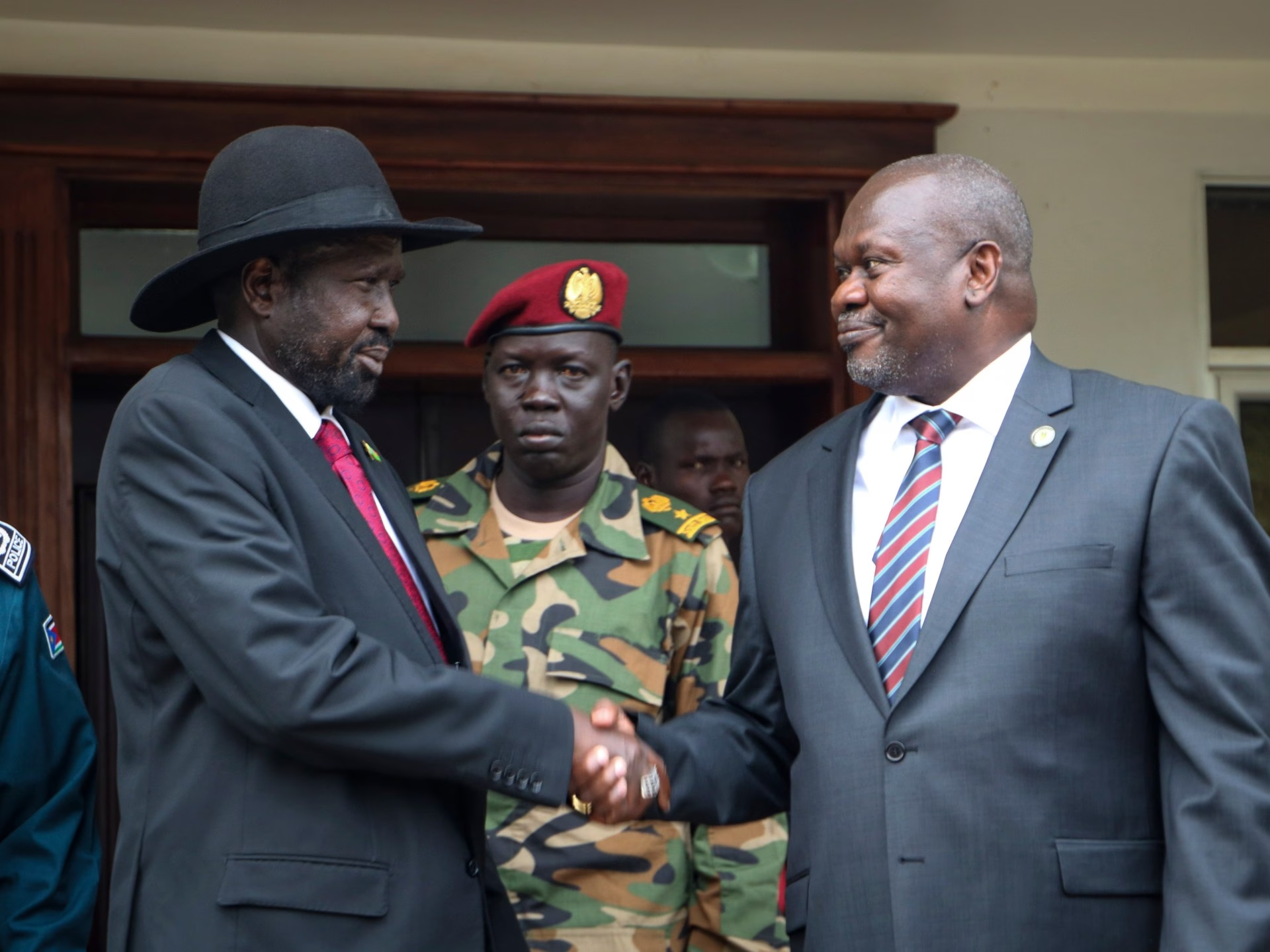Rising tensions in South Sudan lead to conflicts as power-sharing arrangement between President Salva Kiir and First Vice President Riek Machar breaks down.
Uganda has deployed special forces in South Sudan amid growing concerns that the nation may descend into a civil war.
On Tuesday, Kampala’s military chief confirmed that troops had been sent to ensure the security of Juba, the capital of their northern neighbor. The situation between President Salva Kiir and First Vice President Riek Machar is deteriorating as their power-sharing agreement falls apart, leading to violent clashes.
Muhoozi Kainerugaba stated on X that the Ugandan military (UPDF) “only recognizes one President of South Sudan, H.E. Salva Kiir,” and stressed that any action against him would be seen as an act of war against Uganda.
There is no clarity on how long the Uganda troops will remain in Juba or if they were invited by Kiir himself.
Recent days have seen sporadic fighting in South Sudan as the strained relationship between Kiir and Machar threatens to reignite conflict. In 2018, the two leaders signed a peace agreement to conclude a five-year civil war.
Last week, Kiir’s government detained several ministers and military officials linked to Machar.
In Nasir, a northern town, dozens of soldiers and a general lost their lives in skirmishes between the South Sudanese army and the White Army militia, whom Kiir has associated with Machar.
Kiir has stated that he will not allow a return to war, but analysts warn of the risk of conflict renewal.
The United Nations has called on “all actors to refrain from further violence” and urged the country’s leaders to intervene to resolve tensions through dialogue.
The deployment of Ugandan troops mirrors a similar action during the 2013 civil war when they reinforced Kiir’s forces in Juba. In 2016, troops were redeployed after the conflict resumed.
Uganda’s concern is that a full-scale war could lead to refugees crossing their borders, exacerbating regional instability.
In recent months, Uganda has sent troops into the Democratic Republic of the Congo combating rebel groups linked to Rwanda that are in conflict with the government over eastern regions.
On Tuesday, Kampala’s military chief confirmed that troops had been sent to ensure the security of Juba, the capital of their northern neighbor. The situation between President Salva Kiir and First Vice President Riek Machar is deteriorating as their power-sharing agreement falls apart, leading to violent clashes.
Muhoozi Kainerugaba stated on X that the Ugandan military (UPDF) “only recognizes one President of South Sudan, H.E. Salva Kiir,” and stressed that any action against him would be seen as an act of war against Uganda.
There is no clarity on how long the Uganda troops will remain in Juba or if they were invited by Kiir himself.
Recent days have seen sporadic fighting in South Sudan as the strained relationship between Kiir and Machar threatens to reignite conflict. In 2018, the two leaders signed a peace agreement to conclude a five-year civil war.
Last week, Kiir’s government detained several ministers and military officials linked to Machar.
In Nasir, a northern town, dozens of soldiers and a general lost their lives in skirmishes between the South Sudanese army and the White Army militia, whom Kiir has associated with Machar.
Kiir has stated that he will not allow a return to war, but analysts warn of the risk of conflict renewal.
The United Nations has called on “all actors to refrain from further violence” and urged the country’s leaders to intervene to resolve tensions through dialogue.
The deployment of Ugandan troops mirrors a similar action during the 2013 civil war when they reinforced Kiir’s forces in Juba. In 2016, troops were redeployed after the conflict resumed.
Uganda’s concern is that a full-scale war could lead to refugees crossing their borders, exacerbating regional instability.
In recent months, Uganda has sent troops into the Democratic Republic of the Congo combating rebel groups linked to Rwanda that are in conflict with the government over eastern regions.







